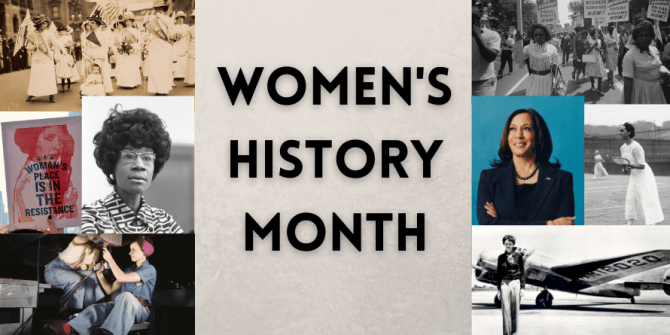
Women's History Month is a great time to reflect on the ongoing struggle for women's liberation from the patriarchy. Below is a non-comprehensive timeline of achievements toward that goal over the past 100 years in the United States:
- 1918 New York v. Sanger, Margaret Sanger wins her fight for doctors to advise married women about birth control.
- 1920 Nineteenth Amendment to the U.S. Constitution was ratified, gaining women the right to vote.
- 1925 Native American women win the right to vote through an act of Congress.
- 1938 The Fair Labor Standards Act established minimum wage regardless of sex.
- 1960 Food And Drug Administration approves the birth control pill.
- 1963 The Equal Pay Act created equitable wages for the same work, regardless of the race, color, religion, national origin, or sex of the worker.
- 1964 Title VII of the Civil Rights Act prevents employment discrimination based on race, color, religion, national origin, or sex.
- 1969 “No fault” divorce law passed in California
- 1971 Phillips v. Martin Marietta Corporation: The U.S. Supreme Court makes it illegal for private employers to refuse to hire women with preschool children.
- 1972 Title IX: of the Education Amendments prohibits sex discrimination in all aspects of education programs that receive federal support.
- 1972 In Eisenstadt v. Baird: the Supreme Court ruled that the right to privacy encompasses an unmarried person’s right to use contraceptives.
- 1973 Roe v. Wade and Doe v. Bolton: The U.S. Supreme Court declares that the Constitution protects women’s right to terminate an early pregnancy, making abortion legal.
- 1974 Congress outlaws housing discrimination based on sex and credit discrimination against women.
- 1974 The Women’s Educational Equity Act funds non-sexist teaching materials, programs, and vocational counseling for girls.
- 1978 The Pregnancy Discrimination Act bans employment discrimination against pregnant women.
- 1993 The Family and Medical Leave Act grants families unpaid, job-protected leave for specified family and medical reasons.
- 1994 The Violence Against Women Act helps victims of rape and domestic violence.
- 2009 Lily Ledbetter Fair Pay Restoration Act allows employees to file a complaint about their paycheck against their employer within 180 days of their last paycheck.
- 2010 In the Affordable Health Care Act birth control is provided without co-pays or deductibles from private insurance companies.
- 2013 Lifts a ban on women holding military combat positions.
- 2013 Reauthorization of the Violence Against Women Act. The new bill extends coverage to lesbians, female immigrants, and Native American women from tribal lands who are attacked by non-tribal residents.
- 2018 The First Step Act requires Federal Bureau of Prisons to give free menstrual products to female prisoners.
- 2022 In light of the overruling of Roe v. Wade and Planned Parenthood v. Casey, President Biden signed Executive Order 14076. This directs the Department of Health and Human Services to expand access to contraceptives, the Department of Justice to gather pro bono legal aid to defend women charged with having an abortion, and asks the Federal Trade Commission to protect patients’ reproductive health privacy.
Check out the new titles below for more information on different aspects of Women's History!

